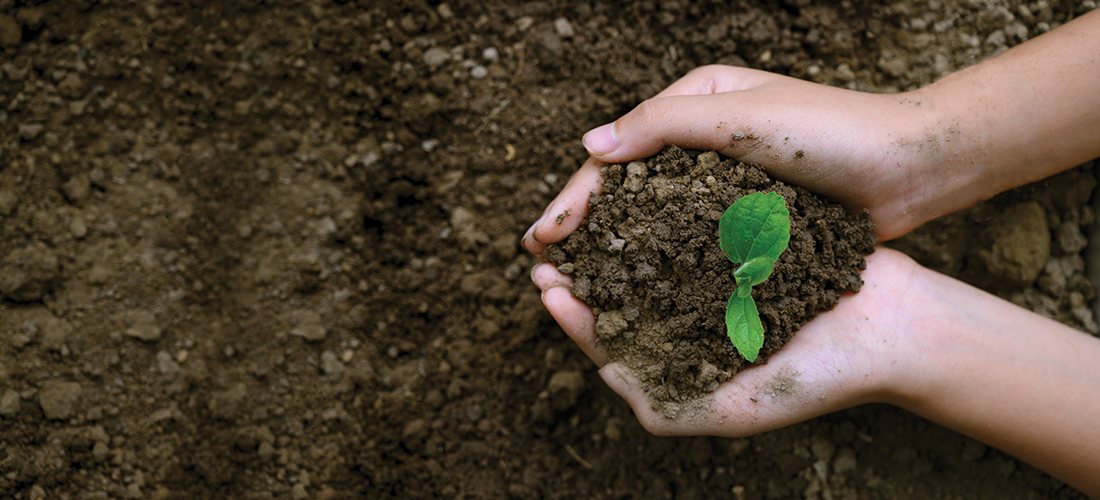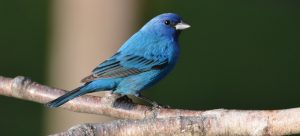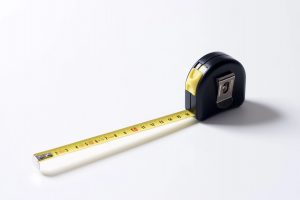
The Stolen Flower Child
Love, loss and living things
By Jim Dodson
On the 50th anniversary of Earth Day, a clear spring morning in my tiny corner of the planet, I was out early planting a fig tree in the side garden — my primary hideout even before a killer virus came to town — when I witnessed an enchanting scene of discovery.
An elegant gray-haired woman and a toddler on wobbly legs came slowly down the street hand in hand. The woman was about my age. I guessed the little dude might be her grandson.
They paused at the edge of my garden. The woman pointed to a birdbath and a pair of busy bird feeders hanging over flowering shrub roses. Several finches were at the feeder and two cardinals were taking morning dips in the birdbath. Bees were circulating through blooming sage. Spring was alive and buzzing.
The little dude dropped the woman’s hand and wobbled straight into the garden for a closer look at the action.
The woman followed close behind, keeping a maternal hand ready to catch him if he fell. The birds didn’t appear the slightest bit perturbed by the pair’s intrusion, and neither was the gardener — for what good is a garden if living creatures don’t pay a visit, be it birds, bees or boys?
Indeed, at one point, the little guy tripped and tumbled over. He didn’t cry, however. He pushed himself back to his feet and giggled, holding out a fistful of my good garden dirt to share with his companion.
She made a delighted show of accepting his special Earth Day gift. Together they examined something in the palm of her hand, perhaps a big wiggly earthworm. My garden is full of them.
How wise she was to encourage this new citizen of the Earth to get dirty in a garden. Once upon a time, when people lived much closer to the soil, Nature was regarded as an essential teacher of the young, a maternal presence used in the service of myths, legends and fairy tales to convey important lessons about survival in a wild and unforgiving world. Perhaps the handsome older woman knew this. Perhaps, given the enchantment of the moment, she actually was Little Dude’s fairy grandmother.
In any case, as I watched this tender scene unfold, leaning on a shovel in my side yard, two thoughts came to mind.
One was a line from a poem that I had commited to memory decades ago, “The Stolen Child” by Irish poet William Butler Yeats
Come away, O human child!
To the waters and the wild
With a faery, hand in hand,
For the world’s more full of weeping than you can understand.
The other was a powerful flashback to the enchanted young woman who introduced me to this poem and changed my life, 50 years ago to the day.
* * *
Her name was Kristin.
We grew up attending the same church and sang together in the youth choir, but she never really looked my way because she was a year older and several lifetimes wiser, a beautiful cheerleader who became a wise and spirited flower child.
During the autumn of my junior year in high school, however, she turned to me after choir practice and wondered if I might give her a ride home. On the way home, she informed me that she’d ditched her college boyfriend and wondered, with a teasing laugh, if we should begin dating. I had a new Chevy Camaro from money I saved up from mowing lawns and teaching guitar. I thought she just liked my car.
What she saw in me at that moment is still hard to say. I was such a straight arrow kid, an Eagle Scout who grew up camping and fishing and was more at home in the woods than the city. Once upon a time, I’d even briefly been a member of the local chapter of Young Republicans and shaken Richard Nixon’s hand, though I didn’t dare let this out until our second or third date.
“That’s OK,” she said with a laugh, “I think the universe sent me to wake you up and save you from the Republicans.”
Perhaps it was our shared passion for the outdoors that created such a powerful bond. She loved to hunt for wildflowers and visit public gardens where she could sit and read poetry or study her lines for a play. She even walked golf courses with me doing the same. Yeats and Walt Whitman were her favorite poets. Because of her, I fancied Yeats and Whitman too.
I was 17 on the first Earth Day, April 22, 1970, though I cannot tell you much about the rally we attended in a public park after school that Wednesday. There was a good crowd, lots of posters and energy, a bevy of passionate speakers warning about the dangers of air and water pollution to future generations. Someone had hauled a rusted heap to the rally site, as I recall, and protesters took turns gleefully bashing the gas-guzzler with a sledgehammer — or maybe this was a subsequent protest we attended together. In any case, I was grateful we’d parked my almost-new Camaro well away from the scene.
I recently learned from the earthday.org website that the first Earth Day protest “inspired 20 million Americans” — at the time, 10 percent of the total population of the United States — to take to the streets, parks and auditoriums “to demonstrate against the impacts of 150 years of industrial development that had left a growing legacy of serious human health impacts.”
The site goes on to note that the first Earth Day led to some significant steps by year’s end: the creation of the United States Environmental Protection Agency and the passage of other environmental firsts including the National Environmental Education Act, the Occupational Safety and Health Act, and the Clean Air Act. Ironically, Richard Nixon signed these pieces of legislation into law. He deserved a handshake for this.
“Two years later,” the website adds, “Congress passed the Clean Water Act, followed by the Endangered Species Act — laws that protected millions of men, women and children from disease and death as well as hundreds of species from extinction.”
In 1990, 200 million people in 141 countries mobilized to make recycling and alternative energy sources primary objectives of Earth Day activism. “Today,” the site concludes, “Earth Day is widely recognized as the largest secular observance in the world, marked by more than a billion people every year as a day of action to change human behavior.” And create a sustainable planet. For me, the best part of that first local rally was when Kristin read Yeats’ “The Stolen Child,” a poem that appeared in his first poetry collection in 1889. The theme plays off loss of childlike innocence against the unmentioned backdrop of a world being turned upside down by the social upheavals of Britain’s Industrial Revolution. Yeats grew up in beautiful County Sligo where folklore and legends of fairies stealing children were commonplace, a subject that deeply interested the poet for much of his career.
In the end, the innocent child is lured away from the familiar comforts of home to a world far removed from the one he knows and loves — stolen away, in the end, to a place that is both wild but also faintly sinister.
On some level, the message is an allegorical plea not to abandon the beauty and challenges of real world, seduced by an illusionary longing to leave troubles behind. Over the year and a half we were together, Kristin opened my eyes about so many things in this world — poetry, art, music, the power of an open mind and the spiritual connectedness of every living creature.
Whenever we debated politics — I was still something of a half-hearted Republican — she joked that she might end up becoming my Maud Gonne, the 23-year-old English heiress and ardent Irish Nationalist Yeats met in 1889 and proposed to — without success — at least three times. She became the poet’s unrequited love and lifelong haunting. In a way, Kristin became mine — or at least my Stolen Flower Child.
We agreed to part when she went off to college in the mountains. The separation was my suggestion. I had a cool Camaro and a silly notion that I needed “space” to date around “before I settled down.” The decision was one I soon came to regret.
Two years later, we got back together. For three October weekends in a row, I drove six hours across the state to reconnect with my first love. She was soon to graduate with degrees in social work and drama, and was being considered for an understudy role in London. I was trying to decide between becoming an English teacher or a journalist. She helped convince me that writing was my proper path.
On Sunday night, October 25, 1973, we parted having made a plan to go to England together someday soon and see what life would yield. Kristin went to the steak house where she worked as weekend hostess and I drove six hours back to school. Later that evening, three young teenagers entered the restaurant to rob patrons, held a gun to the head of the hostess and pulled the trigger.
* * *
As I watched the wise fairy grandmother and Little Dude resume their walk down the block, hand in dirty hand, I went back to planting my young fig tree, marveling how quickly half a century had passed. I also wondered, on this important day in the life of the planet, what sort of world Little Dude would soon inherit.
Ironically, just days before, a gutted Environmental Protection Agency removed the last regulations on air and water pollution in America, part of a systematic dismantling of the sweeping gains in environmental protection that had taken place over half a century, at a time when the vast majority of scientists warn the Earth is facing perilous consequences due to climate inaction. Among other things, the coronavirus pandemic has been traced to human encroachment into formerly wild places where Ebola, SARS and other killer viruses were born. Experts also warn that the world’s population of insects — the basis of our own food chain — is nearly half what it was the year of the first Earth Day.
As for me, it took almost two decades to speak of my own personal tragedy. A final golf trip with my father to England and Scotland when he was dying allowed me to finally open up about that dark October. It proved to be my second great awakening.
Today, I understand that the world is indeed full of sorrows, but thanks to the gifts my stolen flower child gave me, I understand that the power of love is the real magic of life on this planet, not to mention the importance of keeping an open mind while celebrating the spiritual connectedness of every living creature.
I sometimes feel her presence — keeping an eye on my progress, I suspect — especially when I’m in the garden. OH
Contact Editor Jim Dodson at jim@thepilot.com.





